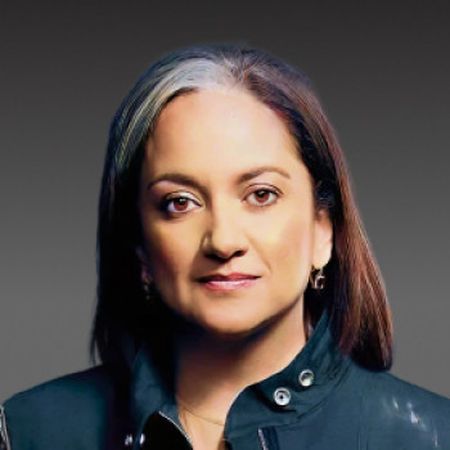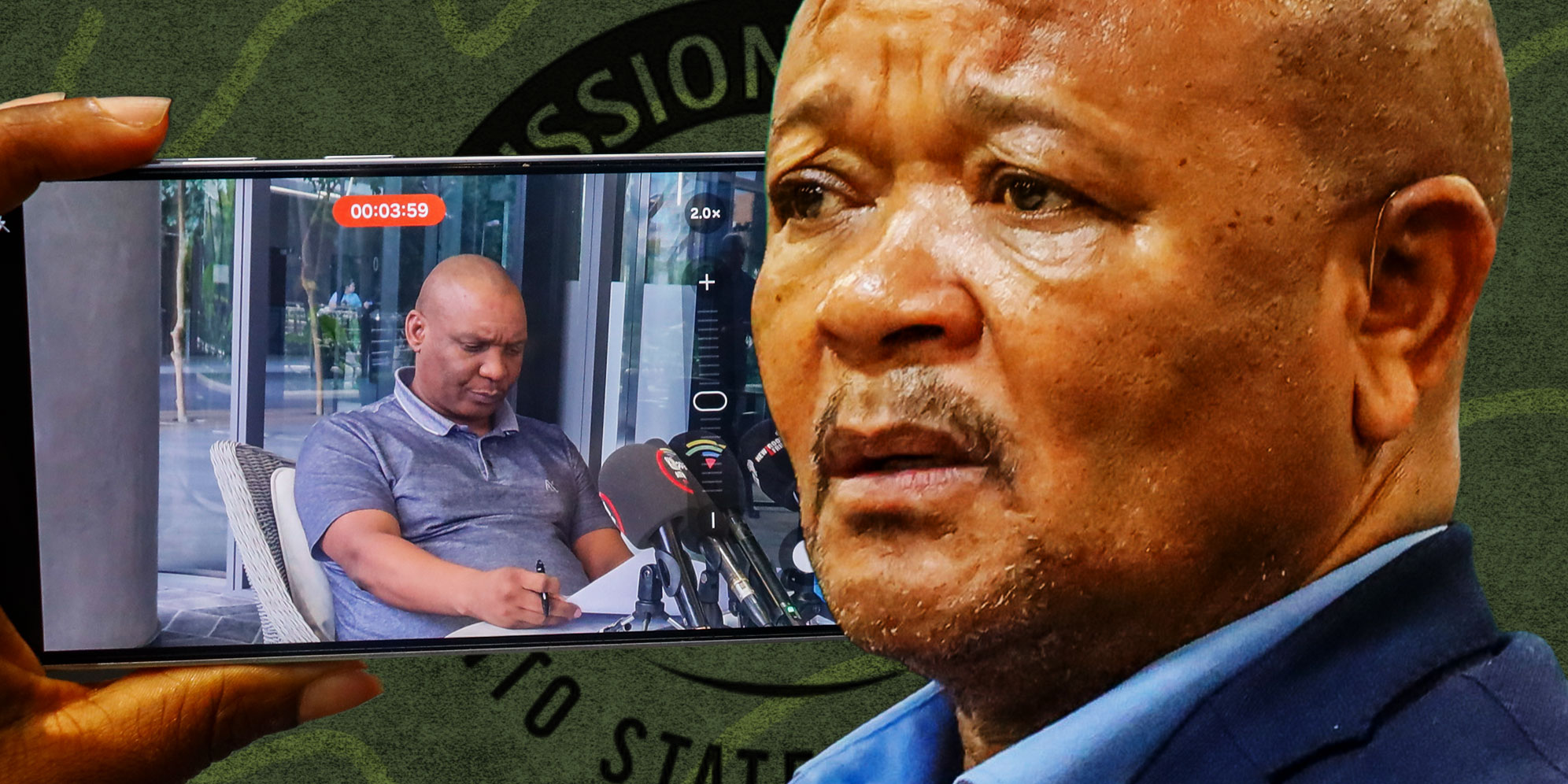
This morning, evidence leaders at the Commission of Inquiry into Criminality, Political Interference and Corruption in the Criminal Justice System will argue before chairperson, Justice Mbuyiseli Madlanga, that the next set of hearings should be held in camera.
This means that we, the people, will not be able to hear the details of the criminalisation and internecine warfare in a police service that makes us live in fear.
What we are witnessing at both the Madlanga Commission of Inquiry and at Parliament’s ad hoc inquiry into allegations of malfeasance and corruption made by top KwaZulu-Natal cop Nhlanhla Mkhwanazi is a factional war in the police that makes us all unsafe. The elephants are fighting, and we are the grass that could be trampled unless we, the people, exercise our voice and demand maximum transparency and rapid accountability.
The application for in camera hearings, first at the Madlanga Commission and later at Parliament, will be couched in the language of national security, or to protect sensitive and ongoing investigations and, possibly, the names of informants. You, we, should oppose this.
Why? Because we are naïve and don’t understand what’s at stake? Because we haven’t read the terms of reference of the commission, which allows for testimony to be led in camera? Because we like the popcorn performance of watching our police leadership fighting?
It’s for none of those reasons.
Right to know
It is because we have a right to know and to see and to assess for ourselves what is being done, and done illegally in our names, and with our public funds.
Both the Madlanga Commission of Inquiry and Parliament’s ad-hoc inquiry into the revelations made by KwaZulu-Natal police commissioner Mkhwanazi are essential, for they pick away at the wound of why the police simply cannot get a handle on runaway crime. Maximum transparency must be the maxim, so that the public and civil society can know and act.
The facts are new this time, but the story is old. Police minister after police minister have never been able to keep their hands out of crime-fighting operations, while the democratic state has too often parachuted cadres into uniform, with disastrous consequences. Think Bheki Cele and Riah Phiyega – both cadres parachuted in as national police commissioners.
The on-ice Police Minister Senzo Mchunu projected himself as a technocratic Cabinet member who would create conditions for good police to fight crime. What we now know is that he was ensnared by a political influencer, allegedly paid by a tender tycoon with a hotline to hitmen.
The commission is about why he disbanded a political killings task team over the December holiday season in 2024, when the country falls into a festive season slumber. But its meta theme is political interference in policing and the continued criminalisation of the state.
South Africa has morphed rapidly from a kleptocracy to a captured state, confirmed by the Commission of Inquiry into State Capture, and is now on its way to being a criminalised state.
Questionable statements
There are no angels in the testimony being led at both the commission and the parliamentary inquiry.
Mkhwanazi may be a people’s hero now, but his statements that the country may “burn” if certain evidence is led publicly and his factional, populist behaviour at Parliament last week (including calling for the intelligence services to investigate the media) raise questions worth exploring about his own probity and professionalism.
Sowing fear in the heart of the public by making veiled threats of fire is no basis for confidence, nor for crime-fighting. It’s worth remembering that Mkhwanazi was on leave when KwaZulu-Natal and parts of Gauteng burnt in what the state called a “failed insurrection” in July 2021. He has never explained, with the megaphone he uses so ably, how his police failed so miserably that the army had to be called in to calm the province and country.
The commission and the parliamentary inquiry are in session, and while they sat last week, there were high-profile, made-for-television raids on witnesses who will appear in the next phase of hearings.
These are the suspended deputy commissioner Shadrack Sibiya, Mchunu and his chief of staff Cedrick Nkabinde, himself a cadre with questions to answer.
This was a complete show of force by a faction of the police, now feeling they are in the ascendancy. The right thing to do would have been to let the inquiries run their course. Or, if things were suddenly so urgent in a police service known for extreme inertia, then surely they could have asked each person to bring the devices they were raided for to the local cop shop?
The raids were undoubtedly acts of intimidation and could be viewed as ham-fisted efforts to find out what the three will say when they appear. The elephants are warring and the grass can be trampled.
South Africa has the eighth-largest police service in the world. We have 150,000 armed police with a crime intelligence wing so big that it is known to be one of the largest in the world. It is much larger, for example, than the entire National Prosecuting Authority.
Yet it is an Augean Stable that has never been properly cleaned out. The Madlanga Commission and the parliamentary inquiry are opportunities to do so and to make our country safer for all its people, not only for the elites (VIP protection services for 250 people is about three-quarters the size of the Hawks, a unit meant to get to the bottom of all organised crime).
Constitutional guarantees
For this reason, we must insist that when both inquiries go in camera, an application to do so is made and granted on a case-by-case basis and that it is granted in line with the Constitution’s guarantees on the free flow of information.
There must be summaries good enough to ensure a basic level of transparency. The criminal intelligence Secret Services Account receives a substantial part of the R15.1-billion allocation to crime intelligence-gathering over the current medium-term expenditure framework.
For that much money, we get precious little crime intelligence good enough to even begin to break the back of the organised crime networks that hold South Africa to ransom.
The two inquiries now under way are not a box-office stage performance, though they may have us on the edge of our seats. Neither are they cage fights of good versus evil. It’s not about picking sides and being cheerleaders for one side or the other.
It is about recognising that the country is morphing from being captured to being criminalised, and recognising the opportunity to stop that trajectory. The greatest disinfectant is sunlight, or transparency, and knowledge of what is being done in our names, and with our public funds. DM





 Illustrative Image: On-ice Minister of Police Senzo Mchunu (Photo: Gallo Images / Sharon Seretlo) | Mchunu’s chief of staff Cedric Nkabinde. (Photo: Gallo Images / Sharon Seretlo) | Madlanga Commission of Inquiry logo. (Image: Wikicommons)
Illustrative Image: On-ice Minister of Police Senzo Mchunu (Photo: Gallo Images / Sharon Seretlo) | Mchunu’s chief of staff Cedric Nkabinde. (Photo: Gallo Images / Sharon Seretlo) | Madlanga Commission of Inquiry logo. (Image: Wikicommons)